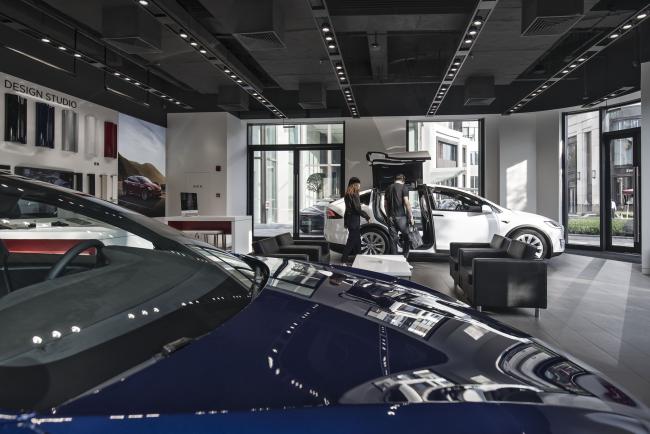(Bloomberg) -- Three days after China’s Dec. 14 move to defuse trade tensions with the U.S., Beijing resident Chang Yan received an email from a Tesla (NASDAQ:TSLA) Inc. sales representative. Because of the tariff cut on U.S.-made cars, the price of the customized Model 3 he’s expecting dropped by almost $6,000.
“It’s very pleasant news for me,” said Chang, a car fanatic who has been awaiting his new Tesla for at least two years. “The previous 40 percent tariff would have scared away quite a few potential Chinese customers for Tesla.”
China scrapping the retaliatory levy slapped on American-made cars is a rare piece of good news out of the world’s biggest car market for the likes of Tesla, hard hit as the trade war and weakening economy kept buyers away from auto showrooms. China’s giant car market is facing its first annual sales slump in at least two decades and anything that helps spur demand is being welcomed by manufacturers betting heavily on the country and its thirst for cars.
Almost immediately after China announced it was lowering the tariff to 15 percent from 40 percent -- a decision foreshadowed by Bloomberg News -- BMW AG and Mercedes-Benz maker Daimler AG (DE:DAIGn) cut prices for their U.S.-made vehicles to the levels from before an extra duty was imposed last July. Tesla lowered prices for its Model S, Model X and Model 3, which will be delivered to first customers early next year.
Profit Warnings
As the trade war intensified early this year, BMW and Daimler both issued profit warnings, citing the risk of falling demand from Chinese consumers for American-made SUVs. While based in Germany, the two automakers are the largest importers of vehicles into China from the U.S.
“The market share of the U.S.-made cars is not big, but the tariff cut means a lot for the companies under impact,” said John Zeng, managing director of LMC Automotive Shanghai. “It is the shot in the arm.”
BMW was quick to welcome China’s tariff reversal, which came after President Donald Trump and his Chinese counterpart Xi Jinping agreed to a trade-war truce at a meeting in Argentina. But the German carmaker declined to comment on what impact the reduction may have on its sales outlook. Daimler said it is monitoring developments in the Chinese market, also declining to comment on the outlook for sales. Tesla declined to comment.
Imported vehicles only account for a small fraction of car sales in China, with many global brands setting up local production there in recent decades. Of China’s $51 billion of vehicle imports in 2017, about $13.5 billion came from North America, including sales of models made there by non-U.S. manufacturers like BMW, according to China’s Passenger Car Association.
Still, for some carmakers, like Tesla, such exported vehicles are a crucial source of income until they can ramp up local production. China is the largest market after the U.S. for the electric-car pioneer and the company will still need to export some cars from the U.S. even after its sets up a plant in Shanghai -- its first factory outside the U.S. -- in the second half of next year.
Read more: Tesla Secures Land in China for First Car Plant Outside U.S.
But while investors cheered China’s tariff move, pushing up carmaker shares across the globe, there’s skepticism it will be enough to revive a market that’s contracted for six straight months, with November sales sliding 18 percent. The rising popularity of ride-hailing and car-sharing services is steadily reducing Chinese consumers’ need to buy their own vehicles, and those interested in purchasing may also be deterred by the slowing economy and selloff in local equity markets.
Shanghai resident Clair Zhang had ordered a Model 3 from Tesla but changed her mind after the retaliatory tariff increase made it more expensive. She asked for her deposit back early this month, and the tariff cut since isn’t enough to change her mind again.
“No matter if it’s 15 percent or 40 percent, I cannot afford an imported Model 3,” she said. “I’ll wait to see if its price will get more reasonable with local production.”
To contact Bloomberg News staff for this story: Yan Zhang in Beijing at yzhang1044@bloomberg.net
To contact the editors responsible for this story: Anand Krishnamoorthy at anandk@bloomberg.net, Ville Heiskanen, Emma O'Brien
©2018 Bloomberg L.P.
